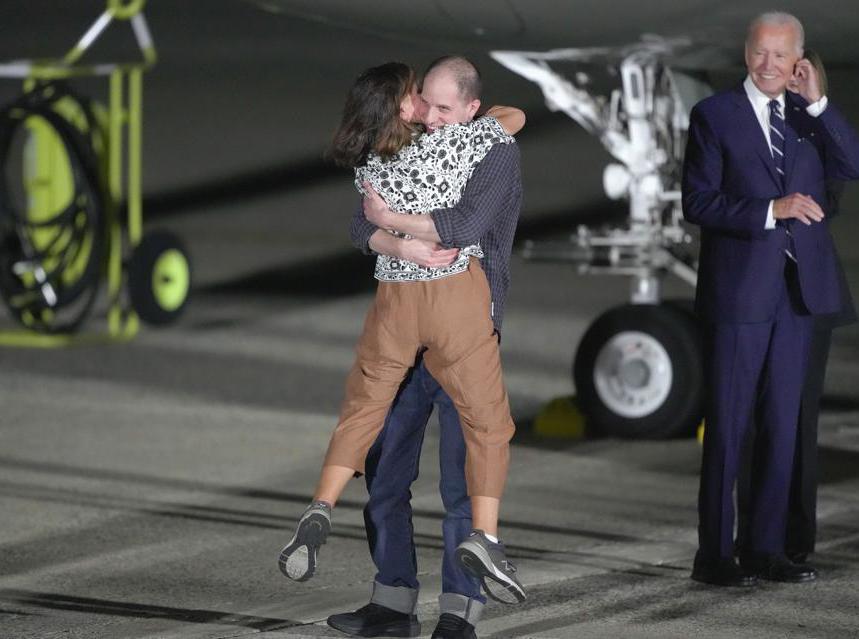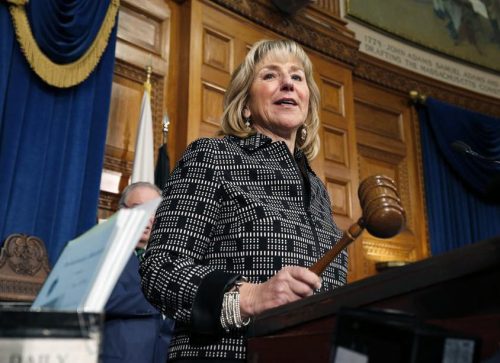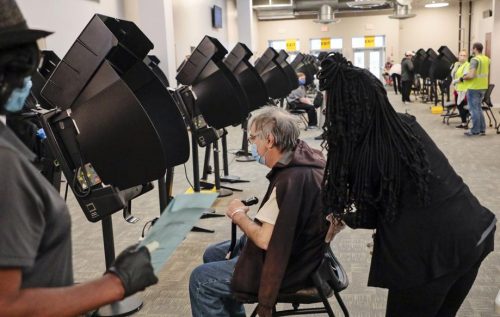Across all our political divides, Americans breathed a sigh of relief Thursday when Evan Gershkovich returned home after more than a year of unjust detention in a Russian prison.
Gershkovich, a reporter for The Wall Street Journal, had been imprisoned on bogus espionage charges by the regime of Vladimir Putin. Along with several other wrongly held Americans, Russian political dissidents, and citizens of other countries, he was finally freed as part of a prisoner exchange — said to be the largest such deal since the Cold War.
Russia extracted a price. To free Gershkovich and the other prisoners, Germany agreed to free a convicted assassin. The United States sent the Russians two convicted hackers and a man accused of smuggling items on behalf of the Russian military.
Which is why, even amid the joy, there were also rumblings of dissent, that the United States was sending a bad message and almost inviting Russia and other hostile countries to take Americans hostage and use them as leverage.
“I remain concerned that continuing to trade innocent Americans for actual Russian criminals held in the United States and elsewhere sends a dangerous message to Putin that only encourages further hostage taking by his regime,’’ said Michael McCaul, the Republican chairman of the House Foreign Affairs Committee. (McCaul also said he was “thrilled’’ about the prisoner exchange.)
While McCaul’s concern is legitimate, Biden made the right call in this case. To let Americans rot in a Russian jail on a point of principle would have been misguided.
In addition to Gershkovich, Russia freed Paul Whelan, a corporate executive and former Marine held since 2018; journalist Alsu Kurmasheva, a US-Russian dual citizen; and Vladimir Kara-Murza, the Pulitzer Prize-winning Washington Post contributing columnist jailed for criticizing Russia’s invasion of Ukraine. Several German nationals were released, too.
It’s the second high-profile trade in recent years. In December 2022, the Biden administration traded convicted Russian arms trafficker Viktor Bout for basketball star Brittney Griner, who had been held on a spurious drug charge. That trade also provoked complaints that the administration was rewarding hostage-taking.
Over the long term, though, taking foreigners hostage is not going to be a winning strategy for Moscow — eventually Americans will just stop traveling there. Nor has Putin been able to use American hostages as leverage for any serious concession on matters of policy. American support for Ukraine, for instance, has been unaffected by hostage politics.
The American commitment to securing the freedom of citizens wrongly held overseas is admirable. This administration, and future administrations, will always need to maintain red lines in negotiations — the United States should never allow itself to be extorted into changing policy, for instance. But the trade that brought Gershkovich, Whelan, and the other prisoners home was an appropriate humanitarian decision to end a saga that dragged on for far too long.
Editorials represent the views of the Boston Globe Editorial Board. Follow us @GlobeOpinion.


